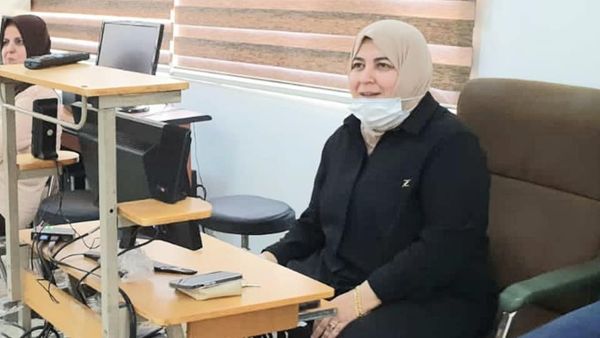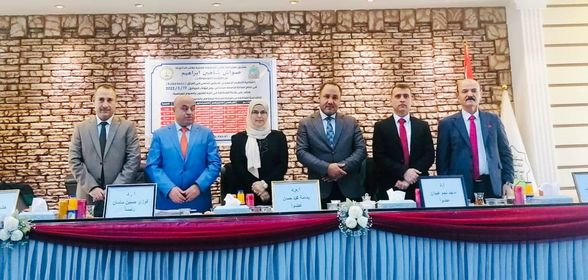
Mosul Technical Institute organizes a panel discussion on “Solar Energy Cells as a Renewable Energy Source”
2022-05-21
A teacher at the Northern Technical University obtains a doctorate in public law for his thesis tagged: “The Problem of the Constitutional Organization of the Presidential Candidacy in Iraq / A Comparative Study”
2022-05-21Mosul Technical Institute organizes a scientific symposium on Crimean-Congo fever, viral hemorrhagic fever
Under the patronage of Prof. Dr. Alia Abbas Ali Al-Attar, President of the Northern Technical University, and the supervision and attendance of Assistant Professor Shahla Abdel-Wahab Abdel-Qader, Dean of the Mosul Technical Institute, the Associate Dean for Administrative and Scientific Affairs, and a number of the Institute’s employees and students, the Scientific Division and the Psychological Guidance and Educational Guidance Unit, in cooperation with the Women Empowerment Unit, organized a symposium A scientific scholar entitled “Viral Hemorrhagic Fever, Crimean-Congo Fever” took turns giving lectures in it:
- Assistant Professor Dr. Mohamed Fadel Haddad, Head of the Department of Medical Laboratory Technologies
- Dr. Huda Abbas Fadel/ Nineveh University College of Medicine
- Dr. Amna Amer Muhammad / University of Nineveh College of Medicine.
The symposium dealt with the definition of the disease, its scientific name, how it is infected, where it spreads, how the infection is transmitted, and what are the symptoms that appear on a person when infected.
The lecture continued by explaining how to distinguish between injury and non-injury.
The symposium included an explanation of how to control the disease in case of infection and how to prevent the risk of infection using appropriate scientific preventive methods.



